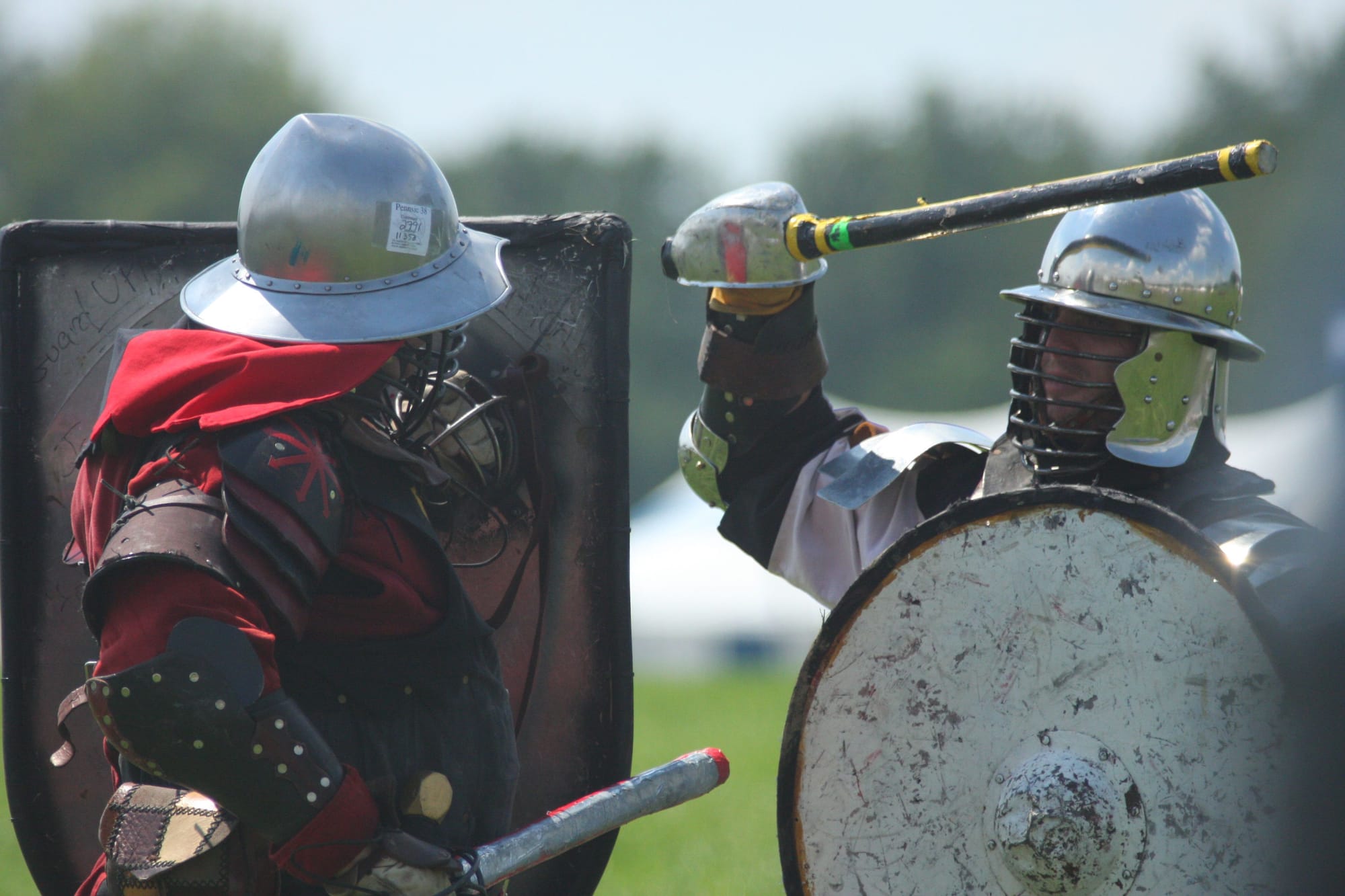Suddenly, I spotted it – the subtle drop of his shield. Everything seemed to slow for a moment. My heart thudded in my ears, and I took a deep breath. As predicted, his blade came swinging over the top of the shield in a quick arc aimed at my head.
Using every ounce of agility I possessed, I dashed left and swung as hard as I could. His eyes widened in surprise, but his reflexes weren’t fast enough. My blade found its mark, a solid blow to his armored shoulder. The giant staggered, pain flashing across his face, as I danced back, regaining my distance.
The arena filled with a collective gasp. The underdog had just delivered a significant blow.
I had been watching him fight all morning, and when I finally realized that this favorite move of his left him open to retaliation I had stepped forward to issue my challenge.
The giant dropped his shield behind him and put his arm behind his back. Somewhat evenly matched now, despite the size difference, I felt a new sense of hope as victory seemed in sight. However, he wasn't done. He growled, a deep, thunderous sound, and swiftly charged at me. Caught by his sudden, intimidating rush, I stepped back and slipped in the mud, my stance going wide. "Thwack!" His blade struck, and my side caught fire. Then, "Clang!" My bell rang as the rattan blade bounced off the borrowed steel helmet.
I was dead.
I really hammed it up. It was my first public death, and I wasn't going to let the opportunity go to waste. I fell back, one leg under me, the other sprawled and twitching. I clawed at the sky before collapsing back to the ground, motionless. The crowd cheered their appreciation.
Peeking one eye open, I saw the grinning giant leaning over me, holding out his hand to help me to my feet. Cold, wet, and covered in about 30lbs of mud, I was glad for the assist as he pulled me up into a bear hug. Ooof.
After my dramatic performance in the mud and my unexpected bear hug, I stood, panting and taking in the applause of the clan. You see, a few weeks ago, this spectacle would have been unimaginable to me. But that was before Bates Mill, before Marisa, and before I was introduced to the vibrant and enthusiastic world of the SCA – the Society for Creative Anachronism.
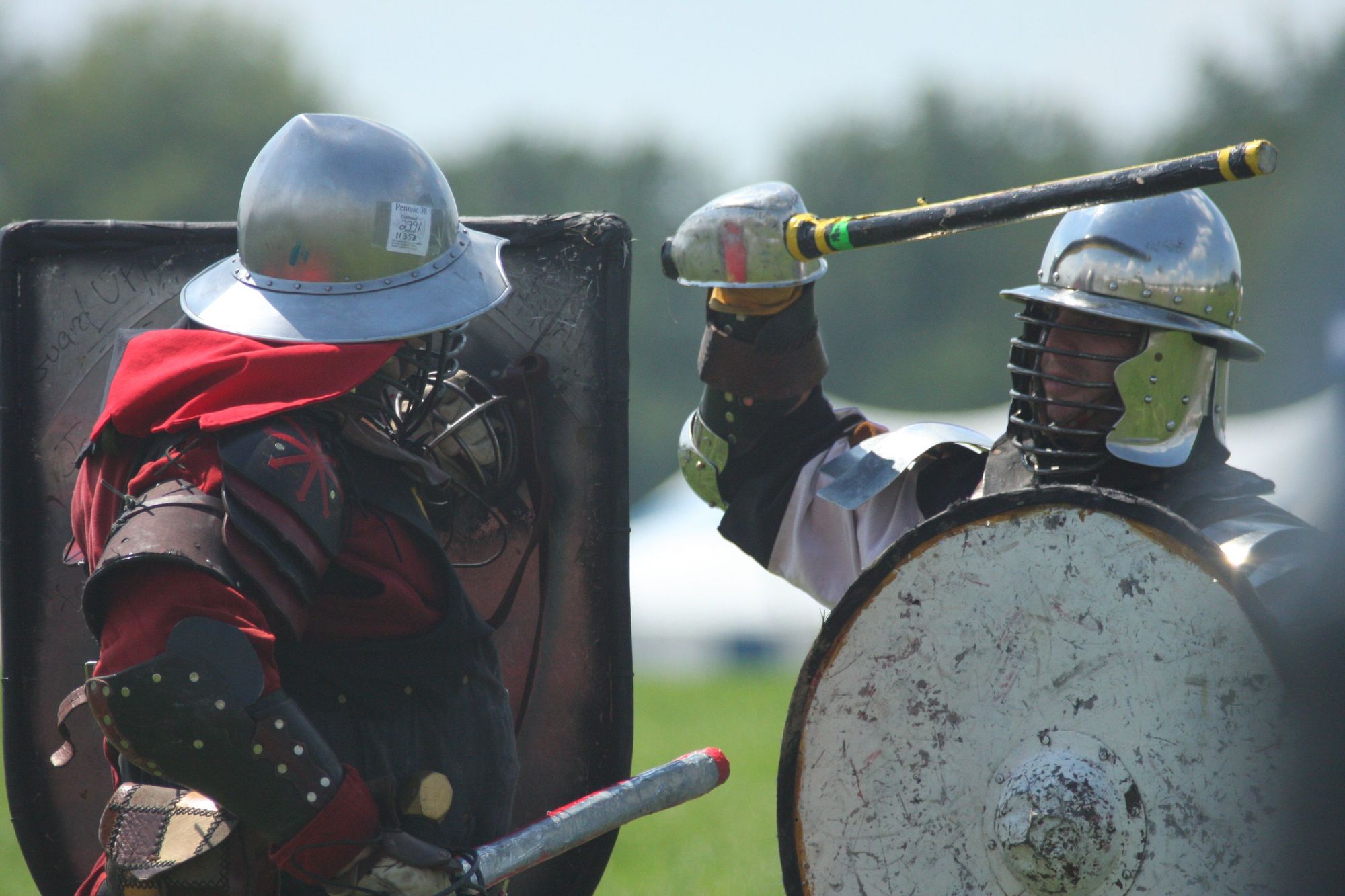
Marisa, with her spirit and enthusiasm for medieval history, had been my gateway to this world. We'd met in Lewiston, a city whose ambiance could hardly be described as medieval. But with Marisa and her SCA group, the past was alive, brimming with tradition, and waiting to be explored.
Thanksgiving with the SCA was unlike any other. There was the combat, of course – a mix of skill, theatrics, and mud. But it was so much more. Later that evening, as I made my way to a member's apartment nearby, the essence of the SCA truly became clear. The dimly lit room shimmered with the soft glow of candles, and a long table was set with handcrafted wooden bowls and cutlery. Bottles of mead, brewed by one of the members the previous year and aged to perfection, were uncorked and passed around. The sweet aroma wafted through the air, complementing the nostalgic ambiance.
Not everyone in the SCA was into combat, though the giant and I certainly were. Some, like the host of our dinner, were master craftsmen, breathing life into history with their skilled hands. Others dove deep into research, ensuring their reenactments were as accurate as possible. But all of them, fighters and crafters alike, shared a single passion: preserving the traditions and stories of bygone times. Their commitment was unwavering, even if resources were often stitched together with creativity and thrift.
Like my opponent's ingenious armor. Football pads paired with a repurposed stop sign as a shield – that was the spirit of the clan. Resourcefulness at its best. They worked with what they had, giving new meaning to old objects.
Earlier that day, Marisa had handed me a package, her eyes twinkling with mischief. "For the newcomer," she'd said, revealing a tunic and hose inside. The tunic, green with intricate brown highlights. The hose, matching in its detailed design, clung snugly to the legs, ending just above the ankle. I recall my initial struggle to don them properly. The tunic had to be layered over my shirt, its length reaching mid-thigh, while the hose required a bit of finesse, fastening with ties to a rope belt. Marisa had laughed, offering quick pointers, her hands deftly adjusting the folds and ties. Underneath it all, hidden from the crowd, were another set of gifts: cozy long johns. They'd prove invaluable, especially given the frigid November weather.
As I sat down to the Thanksgiving feast, with the remnants of mud still clinging to me, I looked around at my new family. There was laughter, stories from the day, and a comfortable sense of belonging. This was my new experience, my newfound community. And for that, I was profoundly thankful.
After the adrenaline rush of the morning's SCA event and the subsequent feast, my thoughts began to drift back to my new job at the Bates Mill. It was ironic, really. A building that was once the very heartbeat of Lewiston, teeming with the sounds of looms and bustling with workers, had transformed over the years. Now, its historic walls housed a modern call center where I had recently found employment.
The Bates Mill, with its iconic brick exterior, dominated Lewiston's industrial past. Founded in the 1850s, it shaped the town's landscape both physically and economically, producing fine textiles that were shipped across the nation. But as with many industrial hubs, time and global competition had taken their toll. The looms fell silent, and the massive structure had to find new purpose.
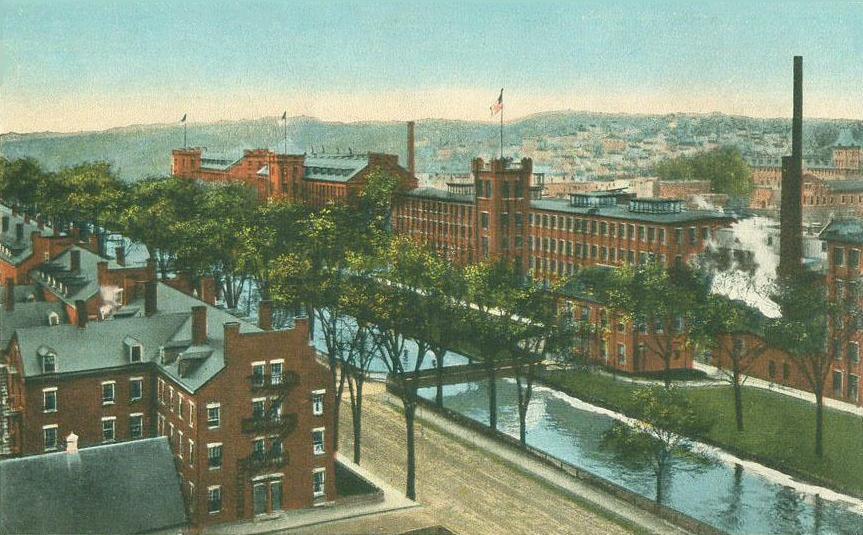
That's where the call center came in, a juxtaposition of the modern amidst the echoes of the past. And it was there, amidst the hum of computers and chatter of telemarketing, that my life took another unexpected turn.
You see, while the job was a lifeline, providing me with much-needed income, it had come a tad too late. My previous relationship had suffered under the strain of financial pressures, and my girlfriend had made the tough decision to move out. The weight of an empty two-bedroom apartment loomed large.
Within the mill, amongst its sprawling sea of cubicles, was where I met Marisa. Conducting surveys for Phillip Morris, I quickly committed the repetitive script to memory. This memorization gave me the freedom to pen short, whimsical tales during calls, their fantasy themes serving as a distraction from the mind numbing repetition. On a whim, I'd slide these tales over to Marisa, my neighboring cubicle companion. To my surprise, she not only relished my stories but actively engaged with them. Our mutual affection for the realm of fantasy seamlessly steered our conversations toward the SCA.
It's funny how life works. Amidst the backdrop of a repurposed mill, over scribbled tales and shared passions, a new chapter had begun.
One day, Marisa leaned around our shared cubicle divider, excitement evident in her voice, "Hey, want to grab a hotdog at Simone's?" I hesitated, admitting, "You know, I've never really been a fan of hotdogs." She playfully rolled her eyes, urging, "Trust me, these are different. You have to try them."
I hadn't heard of Simone's Hot Dog Stand, let alone its locally famous 50-cent hot dog deal on Wednesdays. Intrigued and eager to begin a new friendship, I accepted. Marisa and I trekked to the historic and unmistakably bright red facade and joined the long line that had formed outside.
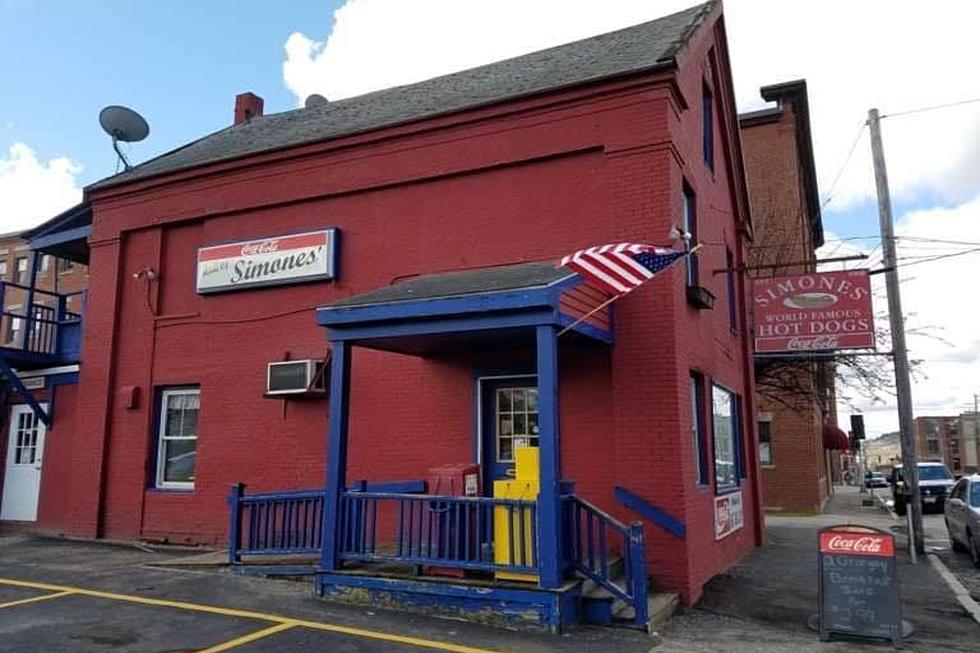
The establishment, with its rich history dating back to 1908, is a famous institution. Photos lined the walls, showcasing famous visitors like Bill Clinton, Politicians, Actors and Authors, along with their signatures. While the city had evolved, Simone's remained a steadfast relic of the past.
Marisa enthusiastically introduced me to the "Lewiston lobster," the famed red-snapper dogs served on steamed square buns. And there it was, the first hot dog I'd ever genuinely enjoyed. The soft bun, the snappy red dog with its juicy interior, and my choice of toppings — jalapenos and cheese. The experience elevated with a Moxie the challenging local soda that I had grown to love.
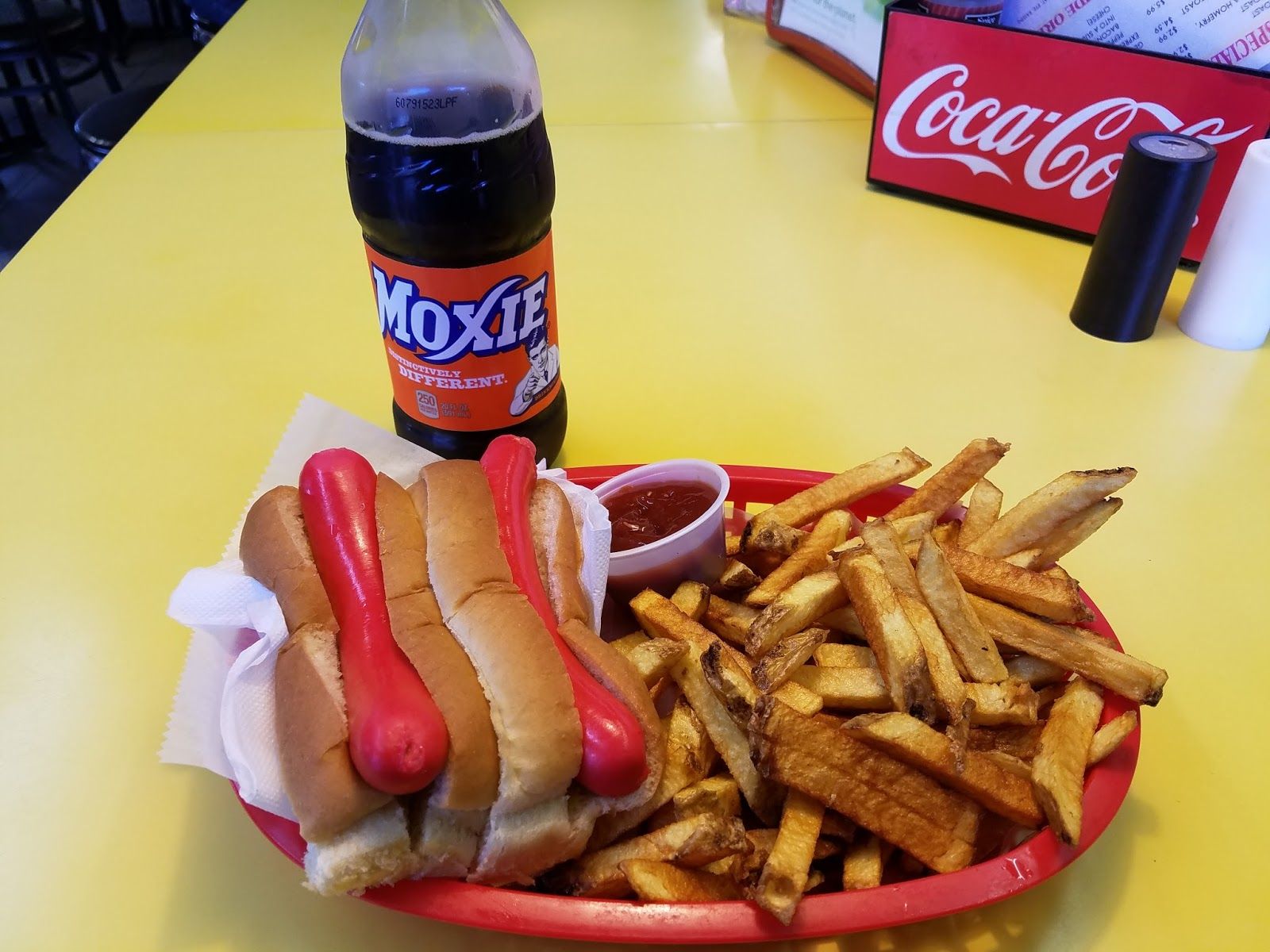
Moxie, though originally conceived in New Hampshire, has long since been embraced as the official soda of Maine. This distinctive beverage, playfully likened to a mix of Dr. Pepper, root beer, and penicillin, proudly stands apart from other sodas with its unique blend of gentian root extractives, wintergreen, and assorted spices. To the uninitiated, its taste is a bit confrontational — a mix of bitter and sweet that may cause a double-take on the first sip. However, to those who've acquired the taste, Moxie is a nostalgic gem.
Its rich history as one of America's oldest sodas, introduced as a patent medicine in the late 19th century, is deeply interwoven with New England's culture. The soda’s influence on the American lexicon is undeniable, with "moxie" evolving to mean courage, determination, or spirit, a tribute to its bold flavor.
Yet, like all legacies, Moxie has seen change. The acquisition by Coca-Cola has left some purists longing for the days of independence, asserting that the drink's essence has been diluted under corporate stewardship. Still, for many, every sip of Moxie remains a journey into a unique slice of Americana, celebrating New England's distinct flavor and spirit.
Twenty years have passed since my time in Lewiston, and though I now reside on the opposite coast, the memories of that place are as fresh as yesterday's sunrise. Lewiston, along with its twin city Auburn—fondly dubbed "L-A" by locals—has always been a place of contrasts and resilience.
The Androscoggin River, both separates and binds the two cities, Lewiston boasts a rich history. The mills and factories that once drove its economy stand as iconic landmarks, reminders of its industrious past. Bates College, an esteemed institution, has been a beacon of education and progress since its inception.
Today, as I compose this tribute, my heart is heavy. A shadow has been cast over Lewiston with the recent tragic event at Schemengees Bar & Grille and Just In Time Bowling. Such unspeakable violence seems out of place in a city that has always been about unity, understanding, and rebirth. But through the grief, I'm reminded of the unbreakable spirit of L-A.
To the friends I made, to the experiences that shaped me, to the city that will always hold a piece of my heart—this tribute is for you. Even though I'm miles away, know that Lewiston's spirit, its stories, and its people, remain with me. Always.
My time in Lewiston was a medley of sights, sounds, and emotions, with each season painting its unique canvas.

Winter nights draped the city streets in a pristine blanket of white, the crunch of the snow and the dimly lit lamps. Nights where the blizzards raged were memorable, not for the force of nature, but for the camaraderie of drunken marches, laughter, and the thrill of battles in the cold air. I recall the magic of water droplets thrown upwards, transforming into shimmering crystals before they even touched the ground.
Spring brought about thawed streets and renewed vigor. Every corner store came alive, wafting the irresistible aroma of freshly cooked food, beckoning one and all. The imposing silhouette of St. Peter and Paul's Basilica would bask in the soft sunlight, standing tall as a sentinel of time and history.
Summer was marked by hustle and bustle downtown. The empty buildings whispered tales of yesteryears, each brick, and worn street echoing a different story. The local laundromats became more than just a place to wash clothes. It was where the tiny elderly French ladies, with twinkles in their eyes, would jovially try to set me up with their granddaughters, leaving me blushing and embarrassed amidst the comforting smells of fabric softener.
Autumn painted Lewiston in a riot of colors—burnt oranges, vibrant reds, and sun-kissed yellows. The crisp air seemed to carry with it an energy, a promise of change and rejuvenation.
And change it did. The arrival of the Somalian refugees marked a new chapter for Lewiston. What started as hushed whispers and curious glances slowly transformed into acceptance, unity, and a blossoming of cultures. They brought with them not just diversity but a fresh zest for life that breathed a new spirit into the city.
This timelapse of memories, framed against the backdrop of the ever-evolving city of Lewiston, is a treasure trove I hold close. So much more than just a home—it was an experience, a lesson, and above all, a time and place I will never be able to capture in its fullness.
I grieve with you city of my heart.

